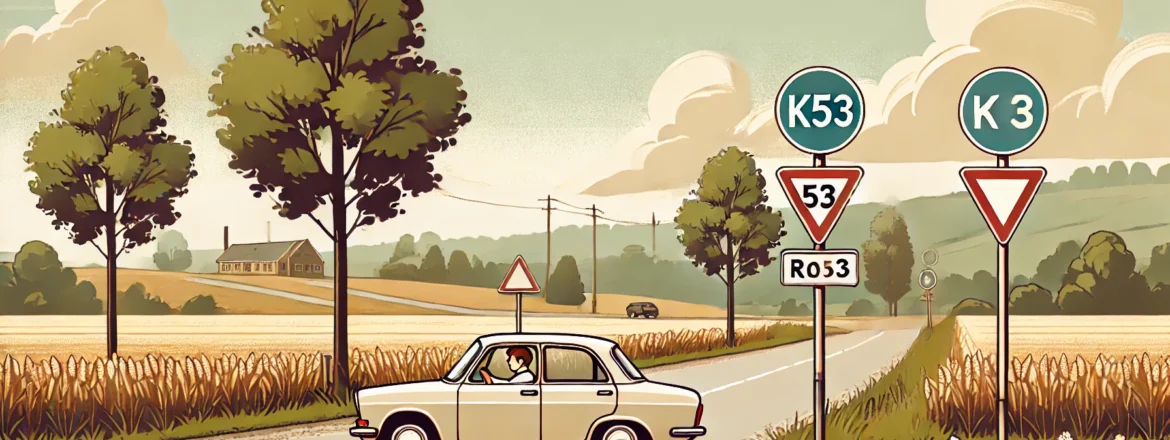Learning to drive in rural areas like the Western Cape offers unique challenges and advantages. Rural driving requires mastering essential skills, such as navigating gravel roads, handling sharp bends, and understanding how to drive safely with minimal road signs or traffic lights. Whether you’re preparing for your K53 test or brushing up on driving basics, practicing in rural settings can make you a confident driver.
Table of Content
- Why Rural Driving is Unique
- Key Challenges of Driving on Backroads
- Tips for Safe Driving on Rural Roads
- The Role of a Driving School for Rural Training
- How to Prepare for Your K53 Test on Rural Roads
- FAQs About Rural Driving Lessons
Why Rural Driving is Unique
Rural driving is different from city driving. In urban areas, drivers deal with heavy traffic, stoplights, and pedestrians. On rural roads, the focus shifts to uneven surfaces, blind curves, and fewer safety measures like guardrails.
Practicing in rural areas helps learners build:
- Better vehicle control on gravel roads.
- Awareness of surroundings in less populated areas.
- Skills for handling emergencies, such as potholes or sudden animal crossings.
Key Challenges of Driving on Backroads
Driving on backroads can be difficult for beginners. Here are some common challenges:
1. Gravel Roads
Loose gravel reduces tire grip, increasing the risk of skidding. Drivers must learn how to slow down gently and steer steadily.
2. Blind Corners
Sharp, blind curves are common on rural roads. Drivers must approach slowly and stay in their lane.
3. Lack of Road Signs
Rural roads often have fewer signs, making navigation harder. Learners must focus on identifying hazards without relying on road markings.
4. Wildlife Crossings
Animals, such as antelope or livestock, may cross roads unexpectedly. Being alert and knowing how to brake safely is crucial.
Tips for Safe Driving on Rural Roads
1. Drive at a Safe Speed
Rural roads are unpredictable. Drive at a speed that allows you to stop suddenly if needed.
2. Master Your Braking Technique
Practice braking smoothly to avoid skidding on loose gravel or wet surfaces.
3. Stay Alert for Hazards
Scan the road ahead for potholes, debris, or animals.
4. Use Your Lights Properly
Keep your headlights on in dim conditions to improve visibility, even during the day.
5. Keep Both Hands on the Wheel
Two-handed steering gives you better control, especially on uneven surfaces.
The Role of a Driving School for Rural Training
Enrolling in a driving school near me ensures you get proper guidance to handle rural roads. Professional instructors understand the challenges of rural driving and can help you prepare for:
- K53 road test requirements, such as clutch control and parking.
- Defensive driving techniques, like anticipating hazards.
- Manual driving lessons, which are often ideal for rural conditions.
Driving Schools in Western Cape
Many driving schools, such as iDriving School, specialize in rural driving lessons. Opt for a school that offers training on gravel roads and teaches techniques for navigating sharp turns or blind spots.
How to Prepare for Your K53 Test on Rural Roads
The K53 driving test evaluates your control over the vehicle and ability to follow road rules. Practicing in rural areas can enhance your readiness by teaching:
1. Observation Skills
Rural driving hones your awareness of road hazards and surroundings.
2. Clutch and Gear Control
Driving on gravel requires smooth clutch control to avoid stalling.
3. Hill Starts
Many rural roads have steep hills. Practice stopping and starting without rolling backward.
4. Emergency Stops
Rural settings are ideal for practicing quick stops in a controlled way.
By combining rural driving lessons with K53 training, you’ll gain the confidence needed to pass your test and drive safely in any environment.
FAQs About Rural Driving Lessons
Q: Are rural driving lessons more challenging than city lessons?
A: Rural driving requires mastering different skills, such as handling gravel roads and sharp bends. However, with practice and the help of a good driving school, it can be easier than city driving.
Q: How do I find a driving school near me for rural lessons?
A: Search for driving schools that specialize in rural training, such as iDriving School in Cape Town or Stellenbosch.
Q: Can rural driving lessons help me pass the K53 test?
A: Yes. Practicing in rural settings improves your vehicle control and observational skills, both of which are crucial for passing the K53 test.
Q: What is the best car for learning to drive on rural roads?
A: Manual cars are ideal as they give you better control over gear changes, especially on hills or uneven surfaces.
Conclusion
Rural driving lessons on the Western Cape’s backroads can improve your driving skills significantly. By mastering techniques like navigating gravel roads and observing hazards, you’ll become a confident and safe driver. With the guidance of a professional driving school, such as iDriving School, you’ll also be better prepared for your K53 driving test.


